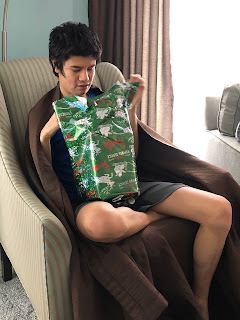G writes: Dear Philip, I have a 14 year old grandson with autism who has gotten more aggressive. He gets upset easily and throws things. He wasnít like this before. He canít tell us why he is upset. Do...
G writes:
Dear Philip, I have a 14 year old grandson with autism who has gotten more aggressive. He gets upset easily and throws things. He wasnít like this before. He canít tell us why he is upset. Do you have any insight on what might be going on with him?
Dear G,
I donít know what your grandson is feeling but here is how I felt at age 14. For me puberty came with many strong feelings.† When I was 14 I wanted to be like the neurotypical kids at my school. They could do things with their friends and be more independent. I felt like there was no hope for me to be free of being dependent on others. Having to have an adult follow me at all times made me feel so different and helpless. I wanted to be normal but there was nothing I could do about it.†
In my mind I want to do what I should, but impulses beyond my control sabotage me. I am unable to make my body follow what my mind wants it to do without lots of support of others. I am always going to be dependent on others for everything. I want to be more independent but I cannot do what needs to be done to be independent. †
I felt very trapped in childhood while my peers moved forward into adolescence. My body was changing and did not match my behaviors. I acted like a toddler in many ways. I needed the support of a child still. It made me feel sad all the time. †
Creating myself to be someone else was my daydream. I dreamed I could talk, go out with friends on my own, and have a girlfriend. But my reality was the opposite.† I had to have mom help me with everything just as my peers were separating from their parents. I questioned,† ďGod, why cant you heal me?Ē† I was angry at myself for being sad and weak to get better. My emotions boiled over easily. Aggression and impulsive acts like throwing had their roots in frustration of not being able to control myself. †
Learning to accept my disability is a lifelong challenge for me. Happy to say I am making progress. I have better acceptance of myself at age 19 than I had at 16. Making friends with others like me has helped. I belong to some clubs with other RPMers who meet weekly on Zoom to discuss music and books. I love knowing I am not alone in my need for support to express myself. I also feel less anxious in my new school because teachers understand that when I have difficulties I need time and space to recover and not lots of lectures and impatience.†
I know it is not easy to watch your grandson have such difficulties. But love and positive feelings toward him will help him feel more accepted so he can accept himself too. Maturity will come. We must all be patient. I also am waiting for when I will be better in my abilities to deal with lifeís challenges.†










